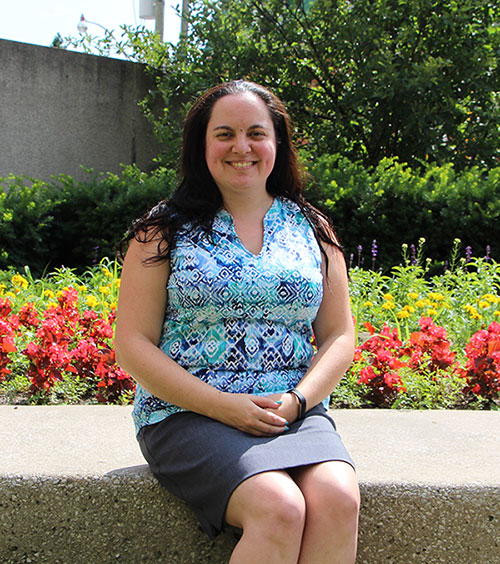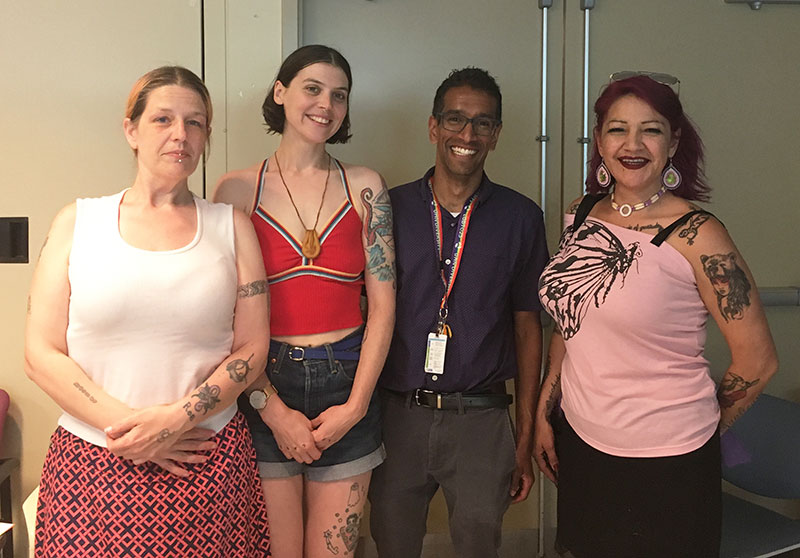
Growing up, Krista Maracle remembers her father warning her not to embrace her Mohawk heritage. It wasn’t until later in life that she decided to learn about her nation’s history and practices.
“Not everyone understands the trauma that Indigenous families went through,” she says. “For my father, he still carried the fear that was instilled in him as a child that you’re going to get taken away if you try to practice your traditions.”
Now a Senior Technologist in the Blood Transfusion Lab at Toronto General Hospital and a member of UHN’s Indigenous Council, Krista and the Council are developing educational resources to help staff provide the best care possible to First Nations patients.
In response to an ask for greater Indigenous representation at UHN, the Indigenous Council was formed in 2017. That same year, the group helped develop a policy for how to accommodate smudging and spiritual observances inside the hospitals.
For thousands of years, Indigenous traditional medicines such as sage, sweetgrass, tobacco and cedar have been considered sacred and protective plants. The common practice of smudging involves the burning of such plants to produce smoke that is believed to cleanse the soul and surroundings of negativity.
“Some patients can’t leave the hospital so with this policy, they can now have a mix of the holistic Indigenous ways of traditional medicine in addition to their medical treatment,” says Krista.
The Indigenous Council’s goal is to educate the UHN community about residential schools, the removal of children from their families for placement in foster or adoption homes during the Sixties Scoop and the resulting intergenerational trauma that still impacts Indigenous peoples today.
“A lot of it is understanding that no two First Nations people, including Métis and Inuit, are the same. They can come from the same nation but they have completely different ways of learning and seeing things,” says Krista.

This past June, the Council hosted an event across multiple UHN sites in celebration of National Indigenous History Month. It involved hosting a representative from Six Nations of the Grand River who discussed First Nations history, shared foods such as bannock and led an activity in which participants made a two row Wampum belt (a visual representation of the agreements made in 1613 between the Five Nations of the Haudenosaunee and the Dutch government).
The Council is also creating fact sheets and e-learning modules for staff to access important information about Indigenous cultures and statistics. Many of these are modelled after the excellent resources and programs currently available from Cancer Care Ontario.
With an increasing number of Indigenous patients visiting hospitals in the Greater Toronto Area, the Council hopes to make UHN an environment where patients feel they can trust their health care team to deliver culturally appropriate care.
“It’s a way to make everybody feel safe – not just patients and families, but also the employees – so that they want to get involved,” says Krista.
Orange Shirt Day occurs annually on September 30 to promote awareness about the residential school system and its impact on Indigenous communities in Canada. For more information on the event and ways to get involved, visit the website.